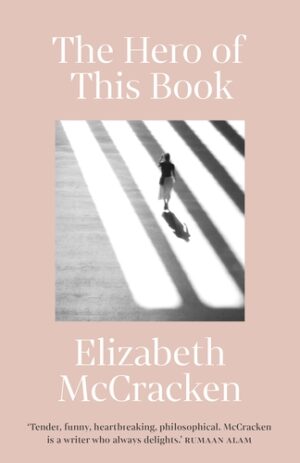One Sunday in summer, a bereaved American writer wanders the streets of London, finding echoes and shadows of her dead mother in a city beloved to them both. The writer is our narrator and the book is most definitely not a memoir. Her mother didn’t believe in memoirs about parents, and anyhow the book’s blurb is keen to tell us that it’s a novel. In The Hero of This Book by Elizabeth McCracken, the lines between fiction and biography are blurred in a cerebral, generous and absorbing read.
McCracken makes sure to prepare us for uncertainty. In the opening pages, our nameless writer advises daunted would-be memoirists to change tack, invent a character and lo, you now have a novel. ‘The freedom one fictional man grants you is immeasurable,’ she says, before introducing us to Trevor, the gentle, hipsterish owner of her chosen hotel in Clerkenwell. He tells her that she’ll love the area’s history, and as she sets off into the Square Mile, she feels the city’s ancient presence settle around her, along with memories of her last trip to London with her mother, and her own status as a ‘motherless child’.
Natalie was her name. A small Jewish lady with fabulous hair and a walking cane, Natalie was a culture vulture and lover of a 9am airport margarita. She was also terrible with money, vain about her aforementioned fabulous hair, and a veritable hoarder (books, cats, waffle irons). By the time of her last trip to London, Natalie’s mobility had decreased to the point of reliance on a motorised scooter. Our narrator isn’t exactly retracing their footsteps (tyre tracks) ‘but I wasn’t avoiding them’.
Each landmark she passes conjures memories and musing, some of it bittersweet. Her mother would’ve loved the London Eye but they had thought it was inaccessible to mobility scooters. The jolt of realising that mistake feels like failure, like grief.
London cabs ‘like trained and kindly hippos,’ their fold-down wheelchair ramps a gift to her mother’s spontaneity. Theatres, galleries, the Thames, each place a prompt, all the London visits of her life ‘layered over one another like posters pasted up on a city wall’.
This day of wandering has made Natalie’s daughter want to dial her childhood phone number. But the phones are unplugged, the house now a series of empty-roomed photos on a real estate website. Long gone are the waist-high piles of books and brown and gold Le Creuset pans from Bloomingdales. Long gone too the little cloaks of dust that shrouded the domestic chaos.
Excellent on the dangers of surrendering to old age, McCracken writes of the wine glass that is taken away because ‘that’s enough now,’ the nursing home that preserves the aged ‘like a roped-off chair in a museum that nobody is allowed to sit in, which makes it only something shaped like a chair.’
She contemplates the concept of literary genre, privacy for the dead and whether blurring the lines between memoir and fiction grants permission to lie. Fictional or not, this extraordinary mother-daughter story is an inspired piece of work from an exceptional writer.
The Hero of This Book by Elizabeth McCracken is published by Jonathan Cape, 149 pages.





